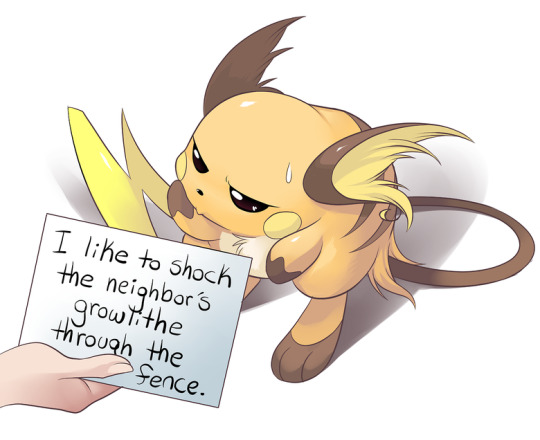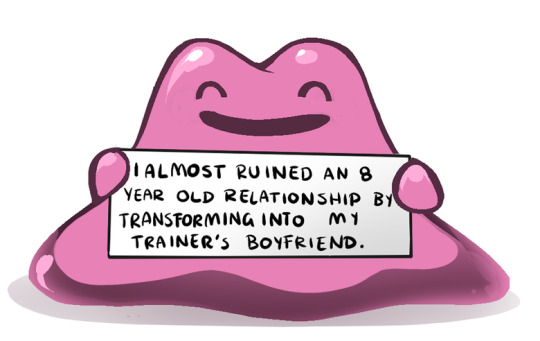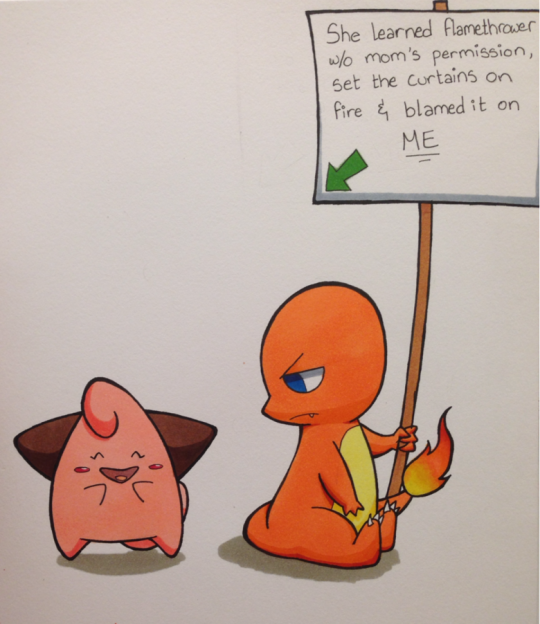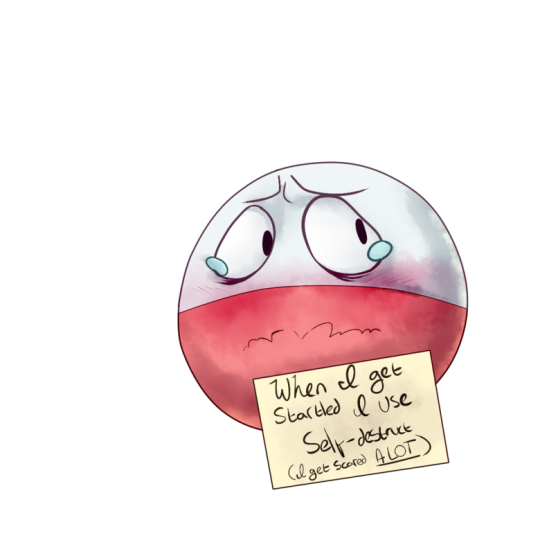Video
Burger King just released one of the best anti-bullying PSAs I’ve ever seen
163K notes
·
View notes
Text
“your kid needs your attention, not adhd meds!”
“maybe we can talk about how with the internet there are more diagnoses of adhd now, and how the internet is rewiring our brains…”
“medicating childhood: the hoax of adhd”
literally all things ive seen in the past fucking WEEK let me out of this hell
44K notes
·
View notes
Text
Fathers' Brains Respond Differently to Daughters Than Sons
Fathers with toddler daughters are more attentive and responsive to those daughters’ needs than fathers with toddler sons are to the needs of those sons, according to brain scans and recordings of the parents’ daily interactions with their kids.

Fathers of toddlers also sang more often to their daughters and spoke more openly about emotions, including sadness, possibly because they are more accepting of girls’ feelings than boys’, according to the study, published in the American Psychological Association’s journal Behavioral Neuroscience®. Fathers of sons engaged in more rough-and-tumble play and used more achievement-related language (e.g., words such as proud, win and top) when talking to their sons. Fathers of daughters used more analytical language (e.g., words such as all, below and much), which has been linked to future academic success.
“If the child cries out or asks for dad, fathers of daughters responded to that more than did fathers of sons,” said lead researcher Jennifer Mascaro, PhD, of Emory University. “We should be aware of how unconscious notions of gender can play into the way we treat even very young children.”
The research examined whether the varying ways in which fathers treat sons or daughters may be influenced by different brain responses to male or female children. The study couldn’t determine if those different brain responses meant fathers are somehow hard wired through genetics or evolution to treat sons differently than they treat daughters or if the fathers were conforming to societal norms relating to gender.
Studies about parenting often are biased in the lab because participants give answers that they think are expected of them or are not aware of their own behavior. The researchers, from Emory University and the University of Arizona, avoided that problem by taking their study out of the lab and into the real world. The study used data from 52 fathers of toddlers (30 girls, 22 boys) in the Atlanta area who agreed to clip a small handheld computer onto their belts and wear it for one weekday and one weekend day. The device randomly turned on for 50 seconds every nine minutes to record any sound during the 48-hour period. Some of the fathers in the study had more than one child, but the study focused only on their interactions with one son or daughter.
“People act shockingly normal when they are wearing it,” Mascaro said. “They kind of forget they are wearing it or they say to themselves, what are the odds it’s on right now.”
The fathers also were told to leave the device charging in their child’s room at night so any nighttime interactions with their children could be recorded, said Mascaro, an assistant professor in family and preventative medicine at the Emory School of Medicine.
Fathers also underwent functional MRI brain scans while viewing photos of an unknown adult, an unknown child, and their own child with happy, sad or neutral facial expressions. Fathers of daughters had greater responses to their daughters’ happy facial expressions in areas of the brain important for visual processing, reward, emotion regulation and face processing than fathers of sons. In a finding that the researchers hadn’t predicted, the brains of the fathers of boys responded more robustly to their sons’ neutral facial expressions, possibly because fathers are responding to the more ambiguous emotional displays of their sons. There was no significant difference in the fathers’ brain responses to sad facial expressions from sons or daughters.
In daily interactions, fathers of daughters used more language referencing the child’s body (e.g., words such as belly, foot and tummy) relative to fathers of sons. Previous research has shown that preadolescent girls are more likely than boys to report body dissatisfaction and lower self-esteem relating to body image.
The study focused on fathers because there is less research about fathers’ roles in rearing young children than mothers, Mascaro said. The study couldn’t make any definitive long-term connections between the varying treatment of sons or daughters as toddlers and future outcomes for those children, but the research explored some possible links that may offer some recommendations for fathers. Since the research was conducted in the United States, the study also couldn’t draw any conclusions about fathers in other cultures with different societal norms for fathers.
If fathers are more present and attentive to daughters and open to expressing emotions, that may help girls develop more empathy than boys, so fathers of sons could take the same approach as fathers of daughters, Mascaro said.
“The fact that fathers may actually be less attentive to the emotional needs of boys, perhaps despite their best intentions, is important to recognize,” she said.
Other research has found that restricted emotions in adult men is linked to depression, decreased social intimacy, marital dissatisfaction and a lower likelihood of seeking mental health treatment.
Previous research also has shown that rough-and-tumble play by parents can help young children better regulate their emotions. Fathers of daughters may want to engage in more rough-and-tumble play with girls, even though such play is more often associated with boys, Mascaro said.
“Most dads are trying to do the best they can and do all the things they can to help their kids succeed, but it’s important to understand how their interactions with their children might be subtly biased based on gender,” Mascaro said.
487 notes
·
View notes
Text
I just drove my uncle and myself to the hardware store, and he said to me “Molly, I want you to know that being Catholic doesn’t change anything. If you someday get married, your wife will be welcome in this family. Don’t ever think otherwise.”
That is really nice, but I am not gay???
375K notes
·
View notes
Photo

Athena blessed her with the ability to protect herself and men beheaded her for it.
452K notes
·
View notes
Photo






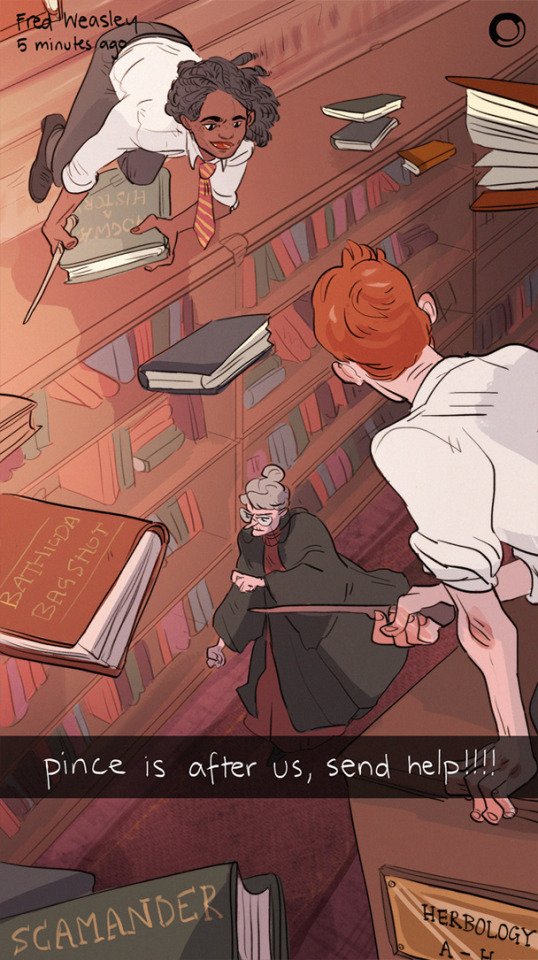

snapchat, insta, and quidditch=games that gryffindor JUST CAN’T LOSE.
amazing illos & hilarz captions created exclusively for SparkNotes by the awesome @sasmilledge
192K notes
·
View notes
Photo

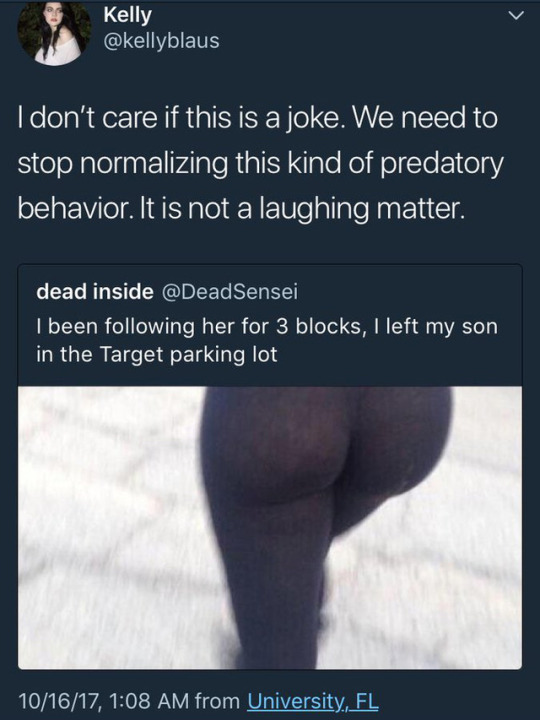


“we don’t really know how this stuff affects people” are you serious? TAKE WOMEN SERIOUSLY AND YOU WOULD.
76K notes
·
View notes
Photo







Amazing woodcarved spoons by Giles Newman. He resides in northern Wales and makes individually designed and hand crafted green wood spoons carved using only traditional hand tools. Find his work on instagram and etsy.
56K notes
·
View notes
Text
Blind people must save a lot on electricity.
666K notes
·
View notes
Text
Aren’t we lucky to live in a world where it is normal to print symbols on thin slices of tree and glue them all together
545 notes
·
View notes
Text
i witnessed the most fascinating thing today imo…my 4th grade art class were talking while they did their work and one of them was like “if you work hard all your life…….it means NOTHING” and their response was to all crack up and start running with this bit like. “you work all your life on an oil painting. the mayor comes in. he says ‘i didn’t even ask you to do that painting.’” they kept going giving examples of nothing mattering and laughing hysterically. they’re 9. like, we think OUR humor is depressing or w/e, how are THEY going to be
446K notes
·
View notes
Photo

Because of the Fifth Amendment, no one in the U.S. may legally be forced to testify against himself, and because of the Fourth Amendment, no one’s records or belongings may legally be searched or seized without just cause. However, American police are trained to use methods of deception, intimidation and manipulation to circumvent these restrictions. In other words, cops routinely break the law—in letter and in spirit—in the name of enforcing the law. Several examples of this are widely known, if not widely understood.
1) “Do you know why I stopped you?”
Cops ask this, not because they want to have a friendly chat, but because they want you to incriminate yourself. They are hoping you will “voluntarily” confess to having broken the law, whether it was something they had already noticed or not. You may think you are apologizing, or explaining, or even making excuses, but from the cop’s perspective, you are confessing. He is not there to serve you; he is there fishing for an excuse to fine or arrest you. In asking you the familiar question, he is essentially asking you what crime you just committed. And he will do this without giving you any “Miranda” warning, in an effort to trick you into testifying against yourself.
2) “Do you have something to hide?”
Police often talk as if you need a good reason for not answering whatever questions they ask, or for not consenting to a warrantless search of your person, your car, or even your home. The ridiculous implication is that if you haven’t committed a crime, you should be happy to be subjected to random interrogations and searches. This turns the concept of due process on its head, as the cop tries to put the burden on you to prove your innocence, while implying that your failure to “cooperate” with random harassment must be evidence of guilt.
3) “Cooperating will make things easier on you.”
The logical converse of this statement implies that refusing to answer questions and refusing to consent to a search will make things more difficult for you. In other words, you will be punished if you exercise your rights. Of course, if they coerce you into giving them a reason to fine or arrest you, they will claim that you “voluntarily” answered questions and “consented” to a search, and will pretend there was no veiled threat of what they might do to you if you did not willingly “cooperate.”
(Such tactics are also used by prosecutors and judges via the procedure of “plea-bargaining,” whereby someone accused of a crime is essentially told that if he confesses guilt—thus relieving the government of having to present evidence or prove anything—then his suffering will be reduced. In fact, “plea bargaining” is illegal in many countries precisely because it basically constitutes coerced confessions.)
4) “We’ll just get a warrant.”
Cops may try to persuade you to “consent” to a search by claiming that they could easily just go get a warrant if you don’t consent. This is just another ploy to intimidate people into surrendering their rights, with the implication again being that whoever inconveniences the police by requiring them to go through the process of getting a warrant will receive worse treatment than one who “cooperates.” But by definition, one who is threatened or intimidated into “consenting” has not truly consented to anything.
5.) We have someone who will testify against you
Police “informants” are often individuals whose own legal troubles have put them in a position where they can be used by the police to circumvent and undermine the constitutional rights of others. For example, once the police have something to hold over one individual, they can then bully that individual into giving false, anonymous testimony which can be used to obtain search warrants to use against others. Even if the informant gets caught lying, the police can say they didn’t know, making this tactic cowardly and illegal, but also very effective at getting around constitutional restrictions.
6) “We can hold you for 72 hours without charging you.”
Based only on claimed suspicion, even without enough evidence or other probable cause to charge you with a crime, the police can kidnap you—or threaten to kidnap you—and use that to persuade you to confess to some relatively minor offense. Using this tactic, which borders on being torture, police can obtain confessions they know to be false, from people whose only concern, then and there, is to be released.
7) “I’m going to search you for my own safety.”
Using so-called “Terry frisks” (named after the Supreme Court case of Terry v. Ohio, 392 U.S. 1), police can carry out certain limited searches, without any warrant or probable cause to believe that a crime has been committed, under the guise of checking for weapons. By simply asserting that someone might have a weapon, police can disregard and circumvent the Fourth Amendment prohibition on unreasonable searches.
U.S. courts have gone back and forth in deciding how often, and in what circumstances, tactics like those mentioned above are acceptable. And of course, police continually go far beyond anything the courts have declared to be “legal” anyway. But aside from nitpicking legal technicalities, both coerced confessions and unreasonable searches are still unconstitutional, and therefore “illegal,” regardless of the rationale or excuses used to try to justify them. Yet, all too often, cops show that to them, the Fourth and Fifth Amendments—and any other restrictions on their power—are simply technical inconveniences for them to try to get around. In other words, they will break the law whenever they can get away with it if it serves their own agenda and power, and they will ironically insist that they need to do that in order to catch “law-breakers” (the kind who don’t wear badges).
Of course, if the above tactics fail, police can simply bully people into confessing—falsely or truthfully—and/or carry out unconstitutional searches, knowing that the likelihood of cops having to face any punishment for doing so is extremely low. Usually all that happens, even when a search was unquestionably and obviously illegal, or when a confession was clearly coerced, is that any evidence obtained from the illegal search or forced confession is excluded from being allowed at trial. Of course, if there is no trial—either because the person plea-bargains or because there was no evidence and no crime—the “exclusionary rule” creates no deterrent at all. The police can, and do, routinely break the law and violate individual rights, knowing that there will be no adverse repercussions for them having done so.
Likewise, the police can lie under oath, plant evidence, falsely charge people with “resisting arrest” or “assaulting an officer,” and commit other blatantly illegal acts, knowing full well that their fellow gang members—officers, prosecutors and judges—will almost never hold them accountable for their crimes. Even much of the general public still presumes innocence when it comes to cops accused of wrong-doing, while presuming guilt when the cops accuse someone else of wrong-doing. But this is gradually changing, as the amount of video evidence showing the true nature of the “Street Gang in Blue” becomes too much even for many police-apologists to ignore.
http://www.alternet.org/civil-liberties/7-ways-police-will-break-law-threaten-or-lie-you-get-what-they-want
295K notes
·
View notes
Text
It’s totally okay to say “you know what, this isn’t making me happy” and to walk away from whatever or whoever is keeping you from the happiness you deserve
555K notes
·
View notes
Text
Who wants to hear my new conspiracy theory about lawyers
131K notes
·
View notes




